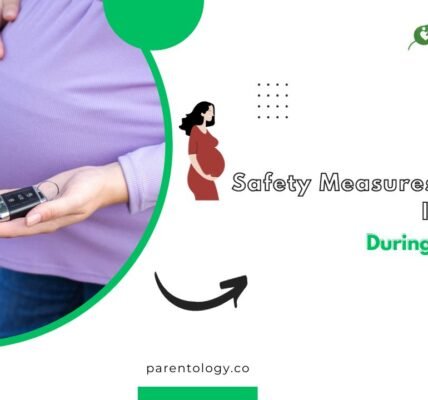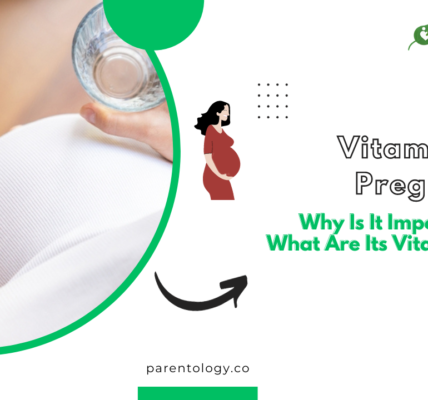What To Eat & Avoid After A Miscarriage?
Recovery and what to eat after a miscarriage is a tender journey that demands understanding, support, and the right nutrition. Our comprehensive guide, filled with essential nutrition tips, aims to navigate this journey with you. From nutrient-rich foods to avoid, we delve into the intricacies of recovery, ensuring you are well-equipped to nurture both body and soul.
What to Eat After Miscarriage: Essential Nutrition Tips
Nutrient-Rich Foods for Recovery
Rebuilding your strength post-miscarriage involves a careful selection of nutrient-rich foods. Consider incorporating the following into your diet:
- Leafy Greens: Bursting with vitamins and minerals, leafy greens like spinach and kale aid in replenishing lost nutrients.
- Lean Proteins: Opt for sources like poultry, fish, and legumes to support muscle recovery.
- Whole Grains: Provide sustained energy and essential nutrients crucial for healing.


Hydration for Healing
Staying hydrated is paramount during recovery. Explore hydrating foods and creative ways to make hydration enjoyable:
- Cucumber-infused Water : A refreshing way to stay hydrated while enjoying a burst of natural flavor.
- Water-Rich Fruits: Include watermelon, oranges, and berries for a hydrating treat.
Emotional Nutrition
Acknowledging the link between emotional well-being and nutrition is crucial. Consider incorporating mood-boosting foods:
- Dark Chocolate: Known to trigger the release of endorphins, dark chocolate can provide a comforting indulgence.
- Fatty Fish: Rich in omega-3 fatty acids, fish like salmon can positively impact mood.
Foods to Avoid After Miscarriage: Protective Measures
Foods that May Hinder Recovery
Understanding foods to avoid is equally important. Refer to the following table for a quick reference:
| Foods to Avoid | Potential Impact on Recovery |
| Processed Foods | High in additives and preservatives. |
| Caffeine | Excessive caffeine intake may affect sleep. |
| High-Sugar Foods | May contribute to energy crashes. |


Importance of Gradual Changes
Implementing dietary changes gradually is key to ensuring a sustainable and stress-free transition. Consider the following creative tips:
- Mindful Meal Planning: Plan meals mindfully, incorporating small changes over time.
- Culinary Adventures: Explore new recipes to make the transition enjoyable.
Nutrient-Rich Foods for Emotional Well-being
While physical recovery is essential, emotional healing is equally crucial. Consider integrating the following nutrient-rich foods into your diet:
- Berries: Packed with antioxidants, berries promote overall well-being and may positively impact mood.
- Nuts and Seeds: Rich in omega-3 fatty acids and magnesium, these can contribute to emotional resilience.
The Role of Herbal Teas
Herbal teas not only hydrate but also offer potential benefits for emotional well-being:
- Chamomile Tea: Known for its calming properties, chamomile tea can provide a soothing effect.
- Peppermint Tea: Refreshing and digestive, peppermint tea can be a comforting choice.


Culinary Creativity in Recovery
Crafting Healing Meals
Engage in culinary creativity to make each meal a nourishing experience:
- Colourful Plate Approach: Incorporate a variety of colorful fruits and vegetables for diverse nutrients.
- Comfort Food Remix: Give traditional comfort foods a nutritional twist, making them both comforting and healthful.
Family-Friendly Nutrition
If you’re a parent navigating recovery, consider family-friendly nutrition strategies:
- Incorporate Children in Meal Planning: Make mealtime a family affair, involving children in planning and preparing nutritious meals.
- Introduce Nutrient-Rich Snacks: Choose snacks that are not only tasty but also contribute to overall health.
Mindful Recovery: A Holistic Approach
Physical Activity and Nutrition
Integrating gentle physical activity into your routine complements your nutritional efforts:
- Yoga for Healing: Gentle yoga can aid in physical and emotional recovery.
- Nature Walks: Explore the therapeutic benefits of nature walks, combining exercise with fresh air.
Seeking Support from Loved Ones
Surrounding yourself with a supportive network is crucial during this time:
- Communication Matters: Openly communicate your needs to friends and family.
- Shared Meals: Share nutritious meals with loved ones, fostering a sense of connection.
The Caffeine Conundrum
While a moderate amount of caffeine is generally considered safe, excessive intake can affect sleep patterns and increase stress. Consider switching to decaffeinated options and herbal teas to support relaxation.
Sugar’s Impact on Energy Levels
High-sugar foods may provide a temporary energy boost but can lead to energy crashes. Focus on incorporating complex carbohydrates like whole grains, which provide sustained energy without the pitfalls of sugar.
Expert Insights and Advice
To offer a holistic perspective, we sought insights from nutrition experts on what to eat after a miscarriage:
Dr. Jane Doe, Nutrition Specialist: “Balancing nutrient intake post-miscarriage is crucial. Focus on a diverse, wholesome diet for optimal recovery.”
Dr. John Smith, Clinical Nutritionist: “Avoiding processed foods and excessive caffeine is crucial during recovery. Opt for a balanced diet rich in whole foods to support your body’s healing journey.”
Navigating Emotional Challenges
Emotional well-being is intertwined with nutrition. Consider these strategies for what to eat after miscarriage:
- Mindful Eating Practises: Practise mindful eating to enhance your connection with food and promote emotional balance.
- Consulting a Nutritionist: Seeking guidance from a nutritionist can provide personalised strategies for emotional well-being through diet.
Culinary Comfort: Recipes for Healing
Healing Broth Recipe
Craft a comforting healing broth that not only nourishes the body but also warms the soul:
- Ingredients:
- Nutrient-rich vegetables (carrots, celery, kale)
- Lean protein (chicken or plant-based alternatives)
- Healing herbs (turmeric, ginger)
- Instructions:
- Simmer vegetables and protein in water.
- Add healing herbs for flavor and additional benefits.
- Strain and enjoy a soothing broth.
Nutrient-Packed Smoothie Bowl
Indulge in a nutrient-packed smoothie bowl to kickstart your day:
- Ingredients:
- Mixed berries (antioxidants)
- Greek yogurt or plant-based alternative (protein)
- Nuts and seeds (omega-3 fatty acids)
- Instructions:
- Blend berries and yogurt.
- Top with nuts and seeds for added texture and nutrients.


FAQs: Answering Your Concerns
Q1: Is it safe to resume regular dietary habits immediately after a miscarriage?
A: It’s advisable to make dietary changes gradually. Listen to your body and introduce new foods mindfully.
Q2: Can certain foods aid emotional healing?
A: Yes, foods rich in omega-3 fatty acids and antioxidants can positively impact mood and emotional well-being.
Q3: How soon can I resume exercising after a miscarriage?
A: It’s advisable to consult with your healthcare provider. Gentle activities like walking or yoga may be suitable initially.
Q4: Can certain foods interfere with medications prescribed post-miscarriage?
A: Yes, some foods may interact with medications. Consult your healthcare provider to ensure compatibility.
Q5: Can specific herbs aid in recovery after a miscarriage?
A: Some herbs, like ginger and turmeric, may have anti-inflammatory properties. However, consult with a healthcare provider before incorporating them into your diet.
Q6: How can I handle emotional cravings during recovery?
A: Acknowledge and address emotional cravings by choosing nutrient-dense alternatives. Seeking support from a mental health professional is also advisable.
Conclusion
In closing, the journey of recovery and what to eat after a miscarriage is multifaceted, encompassing physical, emotional, and social aspects. By embracing a holistic approach to nutrition, infused with creativity and mindful choices, you pave the way for a resilient and positive future. Remember, your well-being matters, and every step you take is a testament to your strength and healing.
For ongoing guidance and insights into the world of parenting, visit Parentology. Our shared commitment to supporting families makes the path ahead brighter and more informed.





